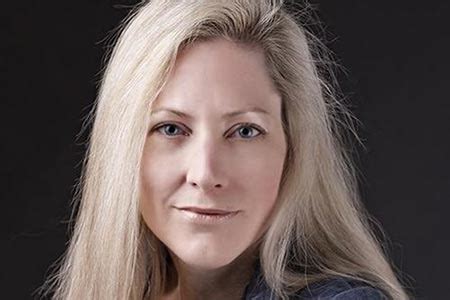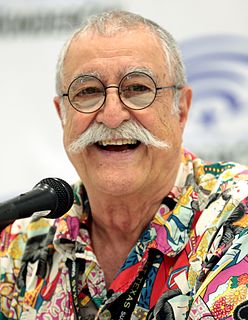A Quote by Lynda Barry
If you can stand to wait 24 hours before you decide the fate of what you have written - either good or bad - you're more likely to see that invisible thing that is invisible for the first few days in any new writing. We just can't know what all is in a sentence until there are several sentences to follow it. Pages of writing need more pages in order to be known, chapters need more chapters.
Related Quotes
Writing is linear and sequential; Sentence B must follow Sentence A, and Sentence C must follow Sentence B, and eventually you get to Sentence Z. The hard part of writing isn't the writing; it's the thinking. You can solve most of your writing problems if you stop after every sentence and ask: What does the reader need to know next?
Lots of kids, including my son, have trouble making the leap from reading words or a few sentences in picture books to chapter books. Chapters are often long... 10 pages can seem like a lifetime to a young reader. Then reading becomes laborious and serious. That's why some of the chapters in my books are very short.
We don't need no more rappers, we don't need no more basketball players, no more football players. We need more thinkers. We need more scientists. We need more managers. We need more mathematicians. We need more teachers. We need more people who care; you know what I'm saying? We need more women, mothers, fathers, we need more of that, we don't need any more entertainers
Writing a book is something I actually feel like I could do. I don't know when that would happen, but I feel like if the right idea strikes, whether it be short stories or a novel or even a memoir that would be more substantial than most of the comedian memoirs people put out where it's big font and all the chapters are like ten pages long.
Ideas come at any moment -- except when you demand them. Most ideas come while I'm physically active, at the gym, with friends, gardening, so I always carry pen and paper. My first draft is always written in longhand. But once the first dozen chapters, more like short stories, are written, then momentum builds until I can't leave the project until it's done.
If you have it you don't need it. If you need it, you don't have it. If you have it, you need more of it. If you have more of it, you don't need less of it. You need it to get it. And you certainly need it to get more of it. But if you don't already have any of it to begin with, you can't get any of it to get started, which means you really have no idea how to get it in the first place, do you? You can share it, sure. You can even stockpile it if you like. But you can't fake it. Wanting it. Needing it. Wishing for it. The point is if you've never had any of it ever people just seem to know.
Thoughts are created in the act of writing. [It is a myth that] you must have something to say in order to write. Reality: You often need to write in order to have anything to say. Thought comes with writing, and writing may never come if it is postponed until we are satisfied that we have something to say...The assertion of write first, see what you had to say later applies to all manifestations of written language, to letters...as well as to diaries and journals



































